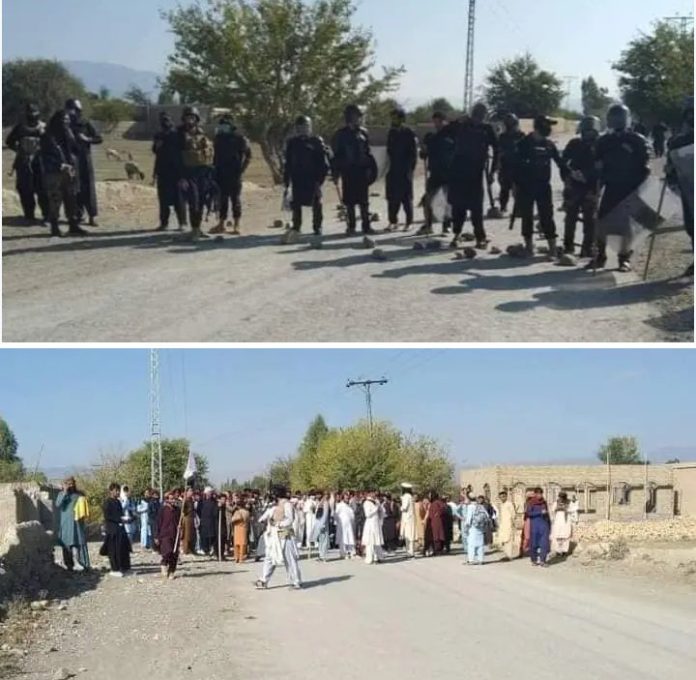The District Commissioner (DC) of Khyber has issued a notification banning gatherings for the next month, coinciding with a planned Grand Jirga of the Pashtun Tahafuz Movement (PTM). This move has sparked outrage from PTM Chief Mansoor Pashteen, who condemned the administration’s oppressive actions, stating, “Jirga is banned in this country only for the peace of Pakhtuns. Otherwise, you can see the notification issued by the same office below.”
Pashteen’s remarks highlight the hypocrisy of a Paki establishment apparatus that simultaneously organizes a sports festival from October 10 to October 15 while suppressing peaceful gatherings aimed at fostering dialogue and justice. He characterized the occupied Punjabi-state administration as both oppressive and hypocritical, emphasizing that it is not the brave who speak out against power, but rather the timid tyrants who oppress innocent people.
The PTM has emerged as a leading voice for justice, peace, and stability in the Pashtun region. Yet, the Punjabi-Pak Army’s systematic crackdown on the movement reveals a grim reality. The Army’s actions have resulted in the killings and disappearances of thousands of Pashtuns, that constitute war crimes and genocidal tactics.
PTM’s Grand Jirga
On one side, Pashtun people are moving toward the Khyber Jirga, carrying white flags and unarmed, embodying a peaceful call for justice. On the other side stands the heavily armed Punjabi Pak forces, equipped with guns, pistols, helmets, and batons, ready to enforce the occupied-state’s oppressive measures.
As the Grand Jirga approaches, the Punjabi Pak Army’s heavy-handedness has escalated, with arrests of PTM members, assaults on their camps, and indiscriminate firing aimed at silencing dissent. The labeling of the PTM as an “unlawful” organization only serves to underscore the military establishment’s resolve to stifle the Pashtun voice for rights and justice.
The international community must take note of these oppressive tactics employed by the Pakistan Army and stand in solidarity with the Pashtun people.

